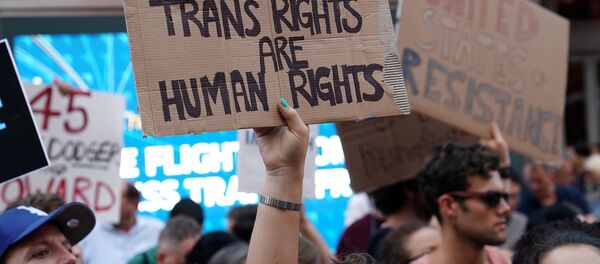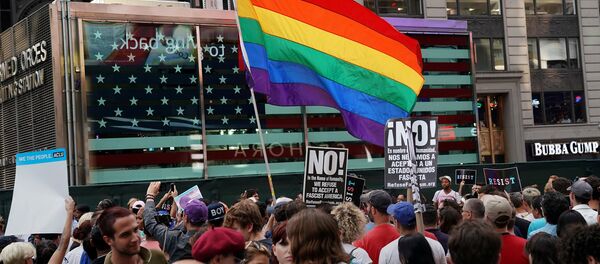Typically, the nation's top court waits until regional appeals courts have ruled on an issue before weighing its constitutionality. However, Solicitor General Noel J. Francisco asked the nine justices on Friday to circumvent that process, saying the administration can't afford to wait for lower courts to decide, the Washington Post reported Friday. He wants them to hear the case in the current term, which began in October and will be end in June or July of 2019.
"The military has been forced to maintain [its] prior policy for nearly a year," Francisco lamented, noting that "absent this Court's prompt intervention, it is unlikely that the military will be able to implement its new policy any time soon."
Francisco added that "[Defense] Secretary [Jim] Mattis and a panel of senior military leaders and other experts determined that the prior policy. . . posed too great a risk to military effectiveness and lethality."
The president announced on Twitter in 2017 that the country would no longer "accept or allow" transgender Americans to serve in the military, citing "tremendous medical costs and disruption."
It's unclear why, exactly, all due haste is required in denying transgender people the right to serve in the US military. Further, the administration has never demonstrated the size of those costs or how they are prohibitive for the US military's $52 billion health budget. The National Center for Transgender Equality notes that there are approximately 15,000 transgender people presently serving in the US armed forces and that an estimated 134,000 US veterans are trans.
The administration has since limited the policy to transgender people with a history of gender dysphoria — a condition of recognition that was discarded years ago by doctors when the Diagnostic and Statistical Manual was revised in 2013 and its fifth edition published without Gender Identity Disorder among its recognized mental illnesses. Diagnosed based on an individual's discomfort with their gendered appearance and identity as assigned at birth, that standard served for decades as the definitive metric of whether or not a person was permitted to receive transition resources like hormones and surgeries.
When that happened in March, legal challenges immediately followed.
Challenging civil rights groups and LGBTQ rights groups have cited Trump's statements to argue that the directive is the result of discrimination, rather than a study of how allowing transgender personnel affects the military, noting that the order would prohibit trans people from enlisting and possibly see current service members discharged, denying them medical care.
Lower court judges have largely agreed, with judges in federal courts in Washington state, California and Washington, DC refusing to lift injunctions against the original ban to allow the updated policy to be enforced. Accordingly, the US government is appealing those decisions, the Post noted.
US District Judge Colleen Kollar-Kotelly wrote last spring that "there is absolutely no support for the claim that the ongoing service of transgender people would have any negative effect on the military at all. In fact, there is considerable evidence that it is the discharge and banning of such individuals that would have such effects."
While the US Court of Appeals for the 9th Circuit has heard arguments but not yet issued an opinion; the US Court of Appeals for the DC Circuit is scheduled to hear an appeal of the ruling in December, the Post noted.
Attorney Peter Renn of Lambda Legal told the Washington Post Friday that "yet again, the Trump administration flouts established norms and procedures. There is no valid reason to jump the line now and seek U.S. Supreme Court review before the appellate courts have even ruled on the preliminary issues before them."






